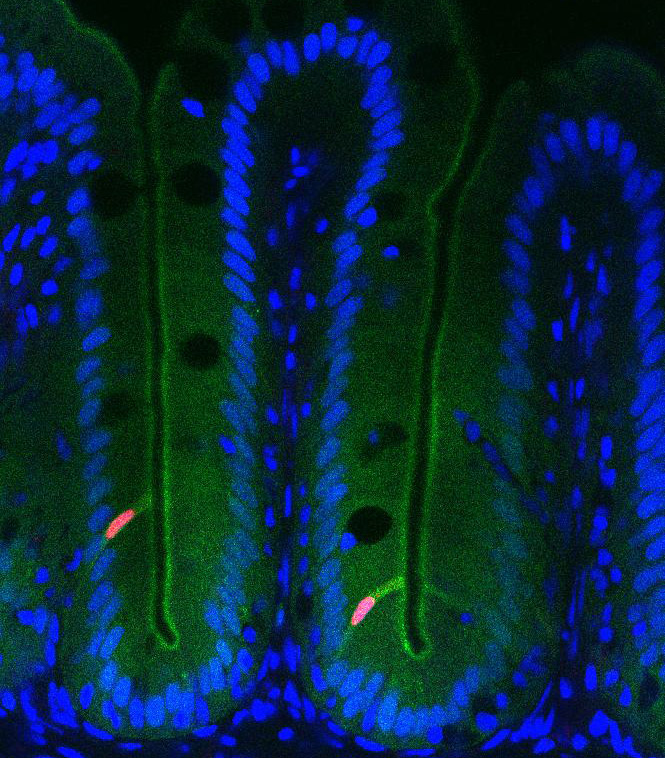현재 위치:홈 > 뉴스현황 > Press Events > Ancient Gut Genetic ...
저자: 업로드:2017-08-31 조회수:
Scientists from the Duke University School of Medicine have discovered a network of genes and genetic regulatory elements in the lining of the intestines that has stayed remarkably the same from fishes to humans. Many of these genes are linked to human illnesses, such as inflammatory bowel diseases, diabetes and obesity.
The research ("Genomic
Dissection of Conserved Transcriptional Regulation in Intestinal Epithelial
Cells"), which appears in PLOS
Biology, marks fish as a model organism for studying how this old
genetic information (covering over 420 million years of evolution) controls the
development and dysfunction of the intestine.
"The intestinal epithelium serves critical physiologic functions that are shared among all vertebrates. However, it is unknown how the transcriptional regulatory mechanisms underlying these functions have changed over the course of vertebrate evolution. We generated genome-wide mRNA and accessible chromatin data from adult intestinal epithelial cells (IECs) in zebrafish, stickleback, mouse, and human species to determine if conserved IEC functions are achieved through common transcriptional regulation. We found evidence for substantial common regulation and conservation of gene expression regionally along the length of the intestine from fish to mammals and identified a core set of genes comprising a vertebrate IEC signature," write the investigators.
"We define an IEC transcriptional regulatory network that is shared between fish and mammals and establish an experimental platform for studying how evolutionarily distilled regulatory information commonly controls IEC development and physiology."

"Our research has
uncovered aspects of intestinal biology that have been well conserved during
vertebrate evolution, suggesting they are of central importance to intestinal
health," said John F. Rawls, Ph.D., senior author of the study and
associate professor of molecular genetics and microbiology. "By doing so,
we have built a foundation for mechanistic studies of intestinal biology in
nonhuman model systems like fish and mice that would be impossible to perform
in humans alone."
According to Dr. Rawls, researchers for years have used animal models to collect information on intestinal epithelial cells that could help combat human diseases. But no one knew how alike these cells were across multiple species. He and colleagues took a comparative biology approach to address this issue.
Research associate Colin R. Lickwar, Ph.D., and the team obtained genome-wide data from intestinal epithelial cells